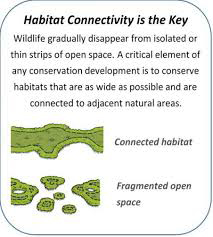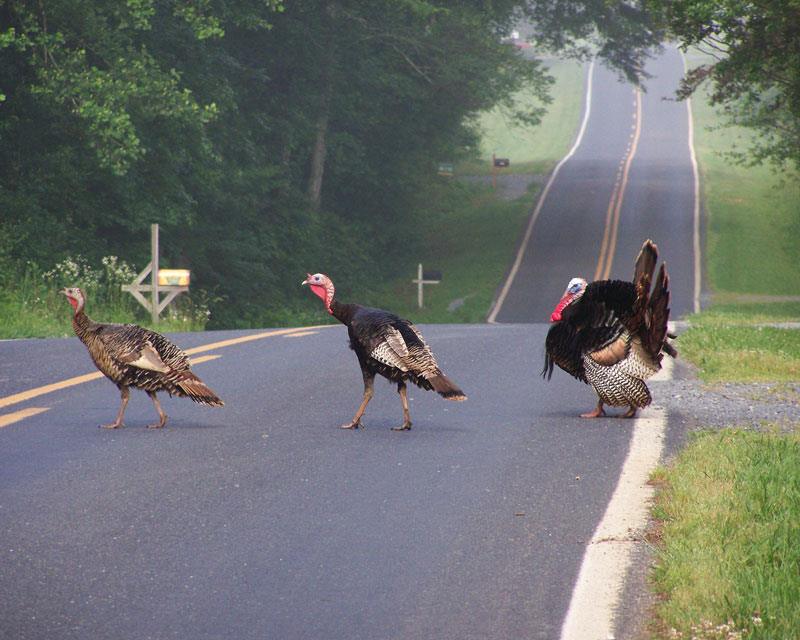Join Us for the January 17 CCP Meeting on Habitat Fragmentation & Landscape Conservation
go.ncsu.edu/readext?573117
en Español / em Português
El inglés es el idioma de control de esta página. En la medida en que haya algún conflicto entre la traducción al inglés y la traducción, el inglés prevalece.
Al hacer clic en el enlace de traducción se activa un servicio de traducción gratuito para convertir la página al español. Al igual que con cualquier traducción por Internet, la conversión no es sensible al contexto y puede que no traduzca el texto en su significado original. NC State Extension no garantiza la exactitud del texto traducido. Por favor, tenga en cuenta que algunas aplicaciones y/o servicios pueden no funcionar como se espera cuando se traducen.
Português
Inglês é o idioma de controle desta página. Na medida que haja algum conflito entre o texto original em Inglês e a tradução, o Inglês prevalece.
Ao clicar no link de tradução, um serviço gratuito de tradução será ativado para converter a página para o Português. Como em qualquer tradução pela internet, a conversão não é sensivel ao contexto e pode não ocorrer a tradução para o significado orginal. O serviço de Extensão da Carolina do Norte (NC State Extension) não garante a exatidão do texto traduzido. Por favor, observe que algumas funções ou serviços podem não funcionar como esperado após a tradução.
English
English is the controlling language of this page. To the extent there is any conflict between the English text and the translation, English controls.
Clicking on the translation link activates a free translation service to convert the page to Spanish. As with any Internet translation, the conversion is not context-sensitive and may not translate the text to its original meaning. NC State Extension does not guarantee the accuracy of the translated text. Please note that some applications and/or services may not function as expected when translated.
Collapse ▲Please join us for the next Chatham Conservation Partnership meeting on January 17, 2019, from 9 a.m.–noon to learn more and participate in a discussion about the importance of the conservation of wildlife habitat and other valuable natural resources at a landscape level as Chatham County grows.
The loss of overall biological diversity in North Carolina – across all plant and animal groups – is largely caused by habitat loss and fragmentation. Landscape connectivity is a key strategy to protect biodiversity, maintain viable ecosystems and wildlife populations, and promote climate change adaptation for wildlife species. Habitat corridors are the primary tools used to achieve connectivity. Without landscape connectivity, the existing patchwork of lands important for conservation will become further isolated, threatening their value and contribution to the long-term persistence of species and ecosystem services. Proactive conservation planning secures benefits for protecting water quality, the future of native plants and wildlife, our local economy, and working farms and forests.
Without landscape connectivity, the existing patchwork of lands important for conservation will become further isolated, threatening their value and contribution to the long-term persistence of species and ecosystem services. Proactive conservation planning secures benefits for protecting water quality, the future of native plants and wildlife, our local economy, and working farms and forests.
Steve Hall, a retired state landscape ecologist and zoologist who co-authored the Chatham County Inventory of Natural Areas and Wildlife Habitat in 1992 and is now working with the NC Biodiversity Project, will provide an overview of the importance of landscape connectivity for wildlife and the impacts of habitat fragmentation from his in-depth knowledge of our region and its biodiversity.
Local planning directors Jason Sullivan (Chatham County) and Jack Meadows (Siler City) will talk about how Chatham County and Siler City are currently addressing habitat fragmentation in their land use development plans and ordinances.
In addition, Julie Tuttle, ecologist and project coordinator, will introduce the collaborative work that is underway to develop an Eno-New Hope Landscape Conservation Plan that will identify high-priority landscape corridors that connect a network of critical wildlife habitats within the Jordan Lake watershed and across the “land bridge” between New Hope Creek (Cape Fear River Basin) and the Eno River (Neuse River Basin).
The meeting will take place at the Chatham County Agriculture and Conference Center, 1192 US-64 W BUS, Pittsboro, NC 27312.
CCP meetings are free and open to the public. Registration is not required.
Agenda:
9 a.m. Welcome and Introductions
9:15 a.m. Habitat Fragmentation 101
Steve Hall, Zoologist & Landscape Ecologist, NC Biodiversity Project
10 a.m. Local Ordinances and Land Use Plans
Jason Sullivan, Planning Director, Chatham County
Jack Meadows, Planning Director, Siler City
10:40 a.m. Break
11 a.m. Eno-New Hope Landscape Conservation Plan
Julie Tuttle, Ecologist and Project Coordinator
11:20 a.m. Introduction of Chatham County NEW Conservation Web Application
Nick Haffele, Chatham County GIS Manager
Allison Weakley, CCP Steering Committee and Chatham Planning Board
11:40 a.m. CCP Updates and Announcements from Members
Noon Adjourn
CCP Steering Committee: Catherine Deininger, Brooke Massa, Debbie Roos, Margaret Sands, Allison Weakley



